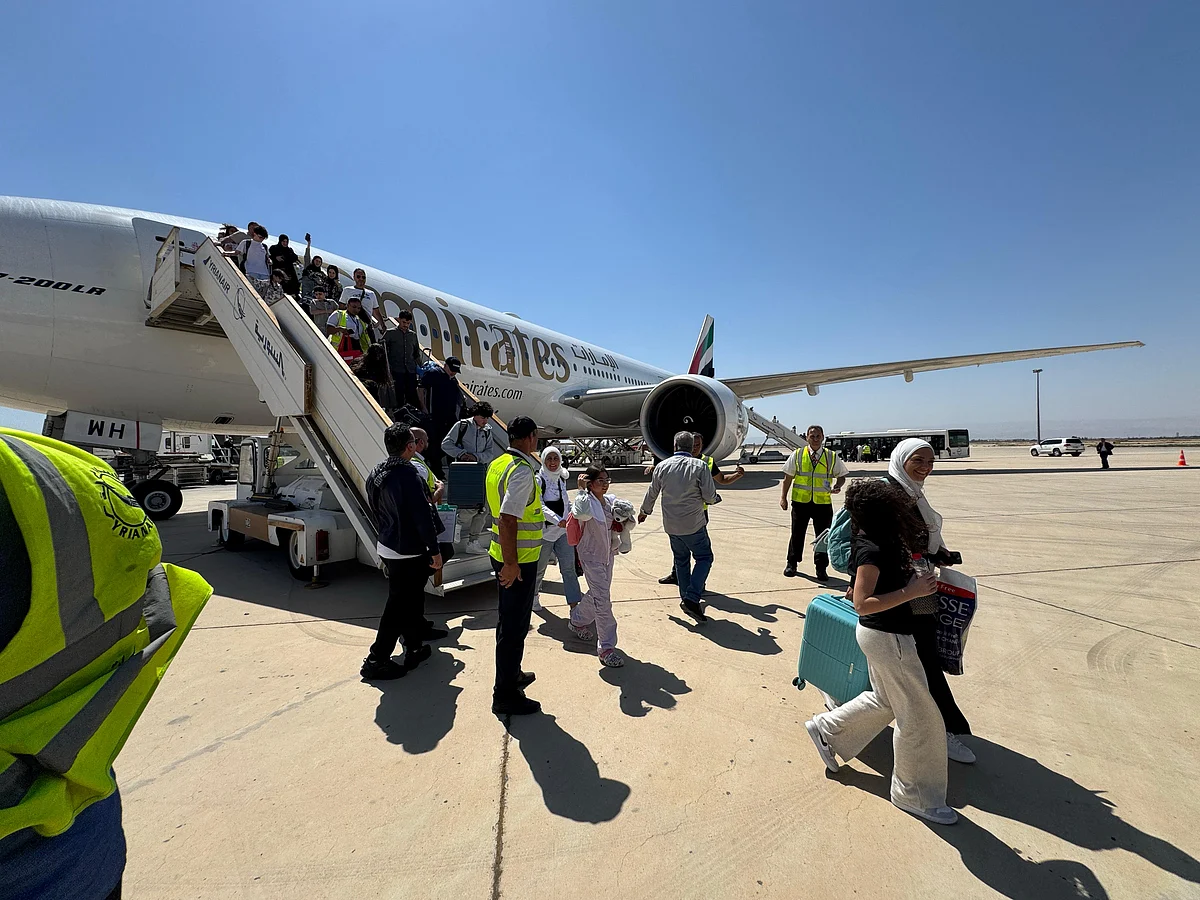Dubai: After a hiatus of several years, major Gulf carriers are cautiously but determinedly resuming flights to Syria, marking a significant step toward reconnecting the war-torn nation with the world.
This move, driven by a desire to support Syria’s recovery and its global diaspora, comes despite ongoing regional tensions and infrastructure challenges.
UAE carriers Emirates, flydubai, Air Arabia, and other major Gulf carriers, as well as Qatar Airways and flynas, are moving forward with plans to reestablish air links with Syria, even as regional tensions continue to make travellers nervous.
Emirates resumed flights to Damascus on July 16, marking the end of a long hiatus. EK913, a 302-seater Boeing 777-200LR, departed from Dubai at 12:09 pm to arrive in Damascus International Airport at 2.10 pm local time. With this launch, Emirates aims to reconnect the global Syrian diaspora to their homeland.
"The flights will open up new opportunities for travellers to conveniently connect to and from the airline’s network of nearly 150 destinations and will support the UAE’s efforts to strengthen bilateral ties and support Syrian aspirations to rebuild and attract foreign investment across key sectors such as energy, construction and agriculture,” Emirates said in a statement.
flydubai, which enjoys a codeshare with Emirates, resumed direct flights on June 1. On Wednesday, Qatar’s national carrier also announced plans to resume three weekly flights to Aleppo, starting from August 10.
“Beginning September 1, Aleppo will be served by four weekly flights,” said Qatar Airways.
A week ago, Air Arabia resumed flights to Damascus (July 10). The route operates with double daily non-stop flights, offering passengers more flexibility and seamless travel between Sharjah and Syria.
This month, at least 11 foreign airlines are scheduled to fly into Syria, up from just three a year ago, according to a Reuters report.
Regional tensions
Still, Syria’s aviation reboot is fraught with hurdles. Inadequate infrastructure, regional conflict, and intermittent Israeli airstrikes are deterring more airlines from resuming operations in Syria. This undermines efforts to revive the country’s war-torn economy after 14 years of civil war. On Wednesday, Israel struck the Syrian military HQ in Umayyad Square, Damascus.
Israel said it bombed Syrian army headquarters in Damascus on Wednesday after warning the Islamist-led government to leave the Druze minority alone in its Sweida heartland, where a monitor says sectarian clashes have killed nearly 250 people.
Recently, airlines such as Royal Jordanian, flydubai, Turkish Airlines and Qatar Airways last month were forced to cancel many of their recently launched flights as airspace across the Middle East closed to civil air traffic due to air and missile attacks involving Israel, the US and Iran.
Alaa Sallal, director of public relations at Syria’s Civil Aviation Authority, told Reuters several airlines had been to inspect security and infrastructure at the airport. “The airport’s construction was dilapidated, the equipment was worn-out, and some was missing,” Sallal said.
Radar equipment was lacking, leaving the country reliant on Lebanese or Turkish radar to monitor air traffic, he said.
The head of Syria’s General Authority for Civil Aviation, earlier this month, stated that the authority aims to construct new airports in Damascus, Aleppo, and the country’s central region. But that will take time and money that the war-ravaged country may struggle to find on its own.
According to the International Air Transport Association (IATA), the easing of sanctions had opened pathways to improved access to aircraft parts, maintenance services and some commercial transactions.
Even as challenges persist on the ground, the resumption of these vital air links is seen as a crucial step towards rebuilding Syria’s connections with the world.
Rebuilding Syria
According to Saj Ahmad, Chief Analyst at Strategic Aero Research, Gulf carriers Gulf airlines are scrambling to return to Syria due to "sanctions being lifted and a new regime."
"And of course, the GCC is home to vast numbers of Syrian nationals. Moreover, airlines don't want to leave the market to others and potentially miss out either," said Ahmad.
"Moreover, I think they're happy to accommodate the disruption because none have huge operations there, so disruption is nowhere near as bad as when say, Iran or Iraq close their airspace," he added.
Airlines and industry observers hope that renewed flight access will not only facilitate family reunions for the global Syrian diaspora but also open new avenues for trade, investment, and ultimately, support the country’s long-term recovery and stability.
The increased connectivity signals a cautious yet determined return to normalcy, which is vital for the nation’s future.
Sign up for the Daily Briefing
Get the latest news and updates straight to your inbox
Network Links
GN StoreDownload our app
© Al Nisr Publishing LLC 2025. All rights reserved.
